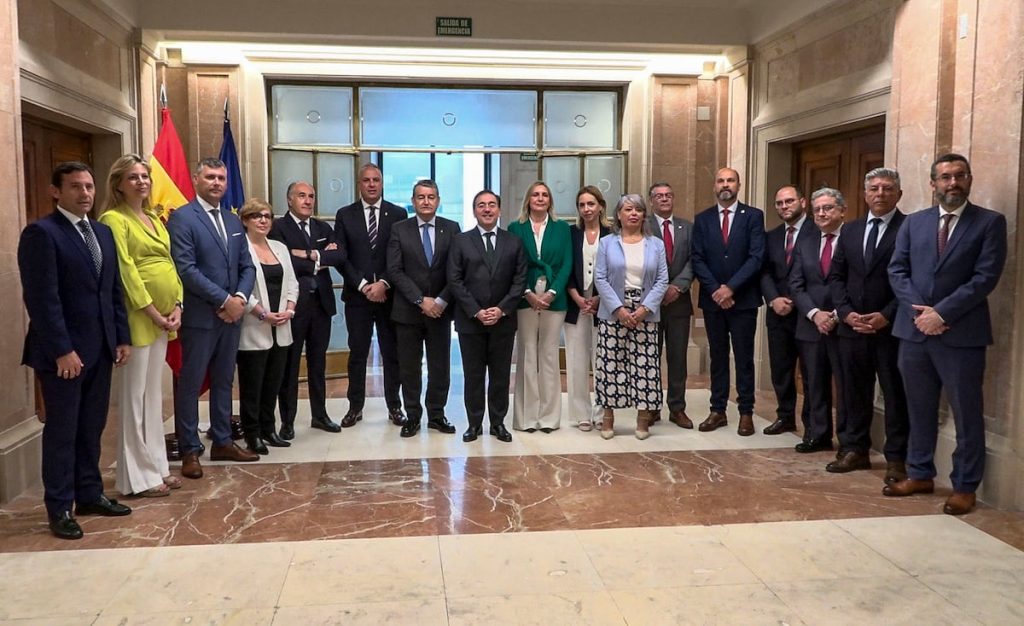The Andalusian government has requested a special tax regime for the Campo de Gibraltar, similar to the ones in place in the Canary Islands or Ceuta and Melilla, in order to prevent fiscal dumping once the agreement regulating relations between the British colony and the EU takes effect. This request was made by the Andalusian Minister of Presidency, Antonio Sanz, after a meeting with the Minister of Foreign Affairs, José Manuel Albares, and the mayors of the Campo de Gibraltar. Sanz argued that when the free movement of goods envisaged in the agreement comes into effect, companies in the neighboring Cádiz region will be at a disadvantage compared to Gibraltarian companies, which only pay a 10% corporation tax compared to the 25% in mainland Spain.
The mayor of Algeciras, José Ignacio Landaluce, also highlighted that the port of Gibraltar is exempt from the fees paid by European ports, creating unfair competition. Albares stated that negotiators are working towards greater “fiscal harmonization”, but did not comment on a special statute, which falls under the jurisdiction of the Ministry of Finance. The Andalusian Minister also requested that the Andalusian government be involved in the trilateral negotiations between the UK, the European Commission, and Spain, pointing out that some of the issues being discussed relate to regional competence.
Both Sanz and Albares emphasized the importance of “institutional loyalty” among different administrations in the negotiations, which will impact the lives of almost 300,000 inhabitants of the Campo de Gibraltar. They highlighted the unique opportunity to reach an agreement that will benefit the economic development of the entire region. Albares reassured that the negotiated agreement with the UK will guarantee the rights of around 15,000 cross-border workers in Gibraltar, addressing the issue of lower pensions received by Spanish workers on the Rock compared to Gibraltarians.
The Spanish Foreign Minister expressed optimism about the possibility of reaching an agreement soon that would involve the complete removal of the Verja (border fence). However, he cautioned that the negotiation is of “enormous complexity” involving multiple ministries, and did not commit to a specific timeline for its conclusion. Albares also stressed that Spain does not renounce its sovereignty claim over the British colony. The meeting with Andalusian representatives was followed by a discussion with members of civil society in the Campo de Gibraltar, including Chamber of Commerce officials, labor unions, business associations, port authority representatives, and university campus administrators, to update them on the progress of negotiations.
Overall, the Andalusian government is pressing for a special tax regime for the Campo de Gibraltar to address potential disadvantages for companies in the region once the agreement with Gibraltar and the EU is implemented. The negotiations involve multiple stakeholders and are characterized by a desire for fairness and economic development in the region. It remains to be seen how the issue of fiscal harmonization and the rights of cross-border workers in Gibraltar will be resolved in the ongoing discussions between Spain, the UK, and the EU.















